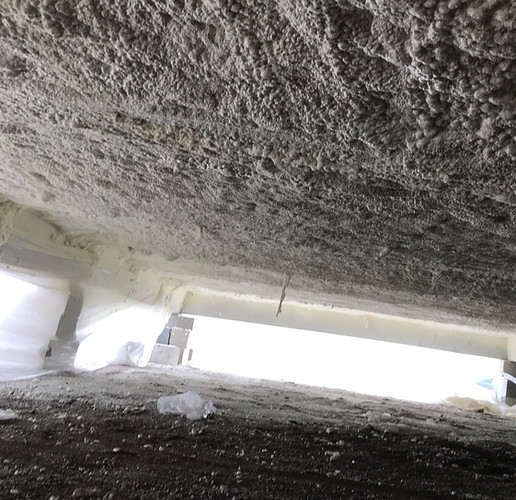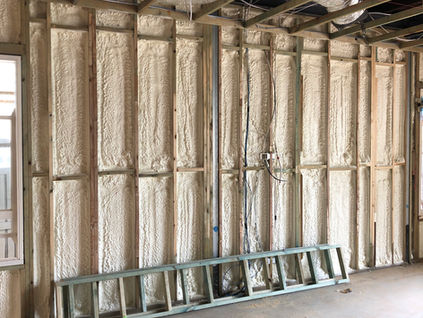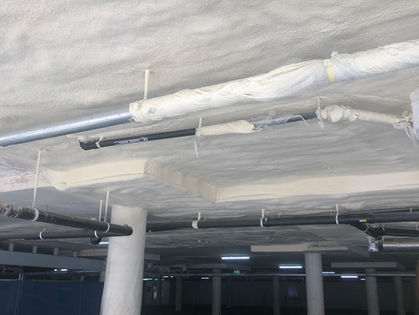Before & After Underfloor Insulation.
Why is Spray Foam Superior for Sheds & Workshops?
Formulated with Fire Retardants meeting Building Code Australian requirements. Closed-cell spray foam insulation is the best-performing insulation because it sprays and sticks directly to the substrate. Commonly used in the construction industry for its insulating properties and ability to seal gaps, cracks, and voids in buildings.

Improving Energy Efficiency with Spray Foam.
Using Closed Cell Spray Foam installed by our certified installers, we will maximise your energy efficiency by upto ~30%, saving you on heating and cooling running costs.
Underfloor insulation parallels wall insulation and ceiling insulation in acting as an extremely effective barrier against heat gain and heat loss, accounting for approximately 15-25% of thermal and heat loss from your home. Efficient insulation results in substantial energy savings, diminished energy bills, and a smaller carbon footprint.Poorly insulated suspended timber floors can contribute to a multitude of heating and cooling problems:
Heat Loss and Gain: Inadequate underfloor insulation can cause significant heat transfer. During winter, heat from inside the building escapes through the floor, while in summer, heat from outside can penetrate through.
Closed - Cell Spray Foam Application.
- High density & rigid
- Effective air & vapor barrier
- Provides greater structural reinforcement
- Higher insulating properties per mm of thickness
- Water-resistant
- Suitable for exterior applications, basements, crawl spaces, and areas where moisture control and insulation are critical.


Read our Frequently Asked Questions.
Need More Information?
Contact Us
The fastest and easiest way to get in contact with us is by submitting the enquiry form below.




Our Services. Where you can use spray foam.
Notable Projects. Where we have used spray foam.

Unique Project Solutions
We are not a one size fits all company. We look at the best options for any project.
Which is why we use insulation batts, cavity wall insulation, and other products depending on the project needs.
As part of the Energy Efficiency Group we are a National Australian company specialising in delivering world leading insulation products and services for any application.

#InsulationBatts
#InsulationRemoval






































